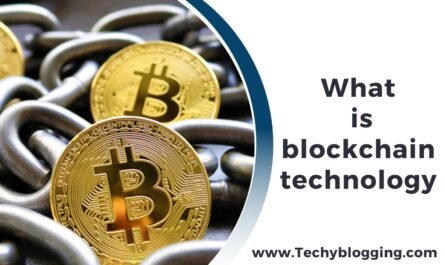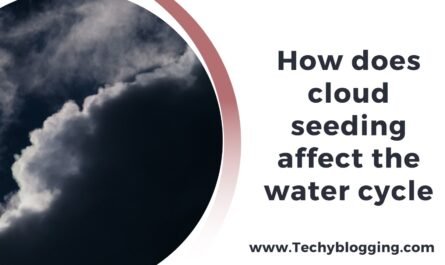The solar energy industry has seen significant recognition as a sustainable energy source in the past few times. As climate concerns grow, change as well as the diminishing of fossil fuels and other sources of energy, many people as well as businesses and government officials have turned to solar energy to offer additional a sustainable alternative. But, as with any other alternative energy source, solar energy has certain positives and negatives. In this article, we will examine each aspect of solar power, and offer an extensive overview to those who are considering its application.
Introduction to Solar Energy
Solar energy is harnessed by the sun’s radiation through a variety of techniques, including photovoltaic (PV) cells which convert sunlight to energy as well as solar thermal systems which are able to capture the heat. Technology has improved dramatically and is now more readily available and efficient for commercial and residential use.
Advantages of Solar Energy
1. Renewable Energy Source
One of the biggest benefits of solar energy is that it’s an renewable resource. Contrary to fossil fuels, which are limited in their supply and ultimately deplete, solar energy is predicted to keep producing energy for many billions of years. It is vital to ensure the long term energy plan and protection of the environment.
2. Environmentally Friendly
Solar energy is among the most clean energy sources that are that are available. There is no pollution to the air and greenhouse gases when it is in operations, drastically reducing the carbon footprint that comes with energy production. With the shift to solar energy the community are able to loated tea recipe to combat climate change as well as lessen the dependence on dirty power sources.
3. Energy Independence
Through investing in solar energy Countries can lessen their dependency on imported oil, thus boosting their security in energy. It can also result in greater stability of prices as well as protect the economy from fluctuation within the international energy market.
4. Low Operating Costs
Once they are installed solar panels come with relatively low operating and maintenance cost. They typically have lengthy life spans, sometimes exceeding 25 years. They require little maintenance. Furthermore, most solar panels can be viewed via remote, which allows for effective maintenance.
5. Job Creation
The solar sector has experienced significant growth and has resulted in the creation of a variety of job opportunities in installation, manufacturing maintenance, research, and installation. Since the demand for solar power is increasing it is expected that the employment market within this field is expected to increase even more and bring economic advantages to communities.
6. Versatility
Solar energy systems are installed in many environments, from huge-scale solar farms, to small-scale residential rooftop installation. This flexibility lets you choose from a broad range of possibilities, making solar power appropriate for urban as well as rural regions.
7. Technological Advancements
Constant technological advancements in solar resulted in increased efficiency as well as lower costs. New technologies such as solar battery storage for energy and better PV material are making solar energy easier to access and effective, opening the way for greater acceptance.
Disadvantages of Solar Energy

1. High primary Costs
Although costs are decreasing but the initial investment in solar power systems could remain high. It includes the initial cost of solar panels, inverters and installations, and possibly permitting costs. Although a variety of incentives and financing options are offered however, financial barriers could deter homeowners as well as firms from making the switch.
2. Weather Dependent
The production of solar energy is heavily dependent upon sunlight. Rainy days, cloudy days as well as geographical locations can all affect the effectiveness in solar panel production. For areas that have less sunlight solar energy might not be an appropriate choice all year round, resulting in an inconsistent supply of energy.
3. Space Requirements
Solar panels need a large area, particularly when they are used for large installations. This is a problem particularly in urban areas, where the land available is scarce. Rooftop solar systems can alleviate the issue, however there are some buildings that are not appropriate to be used for solar panel installations.
4. Energy Storage Costs
Although solar energy is used during the daytime hours but it is required to store it to use later in the evening or when the weather is cloudy. Storage solutions for energy including batteries are costly, which adds costs to the solar power system. The effectiveness and life span of these systems could impact their effectiveness.
5. Environmental Impact of Production
Even though solar power is safe during its operation, making solar panels is a process that requires using hazardous substances and energy-intensive procedures. mining for silicon, silver and rare earth metals could create negative environmental effects. In addition, disposing of solar panels after the conclusion of their useful life can pose recycling issues.
6. Grid Integration Issues
Integration of solar energy into power grids already in place may pose issues. Solar energy is unpredictable and its intermittent energy could cause issues in grid stability and may require more infrastructure and technologies to regulate the demand for energy and supply energetically.
7. Limited Energy Generation at Night
Solar energy production stops at evening, meaning extra sources of energy or storage options are needed in order to satisfy demand during these time. The dependence on other sources of energy can make it difficult to process of transitioning to a completely solar powered grid.
Conclusion
Solar energy can be a great alternative to fossil fuels that can bring a variety of benefits for the environment, economy, as well as social benefits. Renewable nature as well as lower cost make it a desirable feature to many. However, those considering it should be aware of the drawbacks, like the high cost of initial investment and the dependence upon weather conditions.
When deciding to switch to solar power people and businesses should take into account the pros and cons with care. The location of the solar panel as well as financial incentives and the long-term goals for energy are crucial in determining if solar energy is the most appropriate option. With the advancement of technology and increase, there is a good chance that the advantages of solar energy will surpass the disadvantages and lead to a more sustainable, energy-free future.





Appreciating the commitment you put into your site and in depth information you offer. It’s good to come across a blog every once in a while that isn’t the same old rehashed information. Fantastic read! I’ve bookmarked your site and I’m including your RSS feeds to my Google account.
The articles you write help me a lot and I like the topic